|
Dr Abhijit Dam spent a decade in critical care before turning to palliative care. He was a staunch atheist before turning deeply spiritual. The founder of the hospice, Kosish in Jharkhand. transitioned from “treating” to "healing". Here he talks of spirituality and compassion. Also, after the interview, a case for spiritual care as an essential nursing function. Why did you take up palliative care? Dr Abhijit Dam: During my days in medical college, I was fascinated with intensive care. As my career progressed from general medicine to anaesthesiology to intensive care, I was keen to defeat death. For me, death signified a failure of my efforts. After more than 10 years of trying to kill death, I realised that in critical care, more often than not, we were prolonging the process of dying (and making it more painful) rather than saving lives. People die lonely deaths. Often the last image your brain registers when your eyes flutter open for the last time is that of a nurse or ward boy or a sweeper, while your family and loved ones wait beyond the door, a few feet away, not allowed to be with you. You end up paying through your nose for a painful, undignified and lonely death. I believe that the poor, who cannot afford medical care, die a more meaningful and dignified death at home with their loved ones around, holding their hands, while they exit from this mortal world. When did you get into palliative care? I was at the Bokaro Hospital when I first suggested that the hospital should start palliative care services. The hospital did not agree; my friends in medicine snickered behind my back. Then, in 2006, I chanced upon Eastern and Central European Palliative Care Task Force (ECEPT). They were offering training opportunities. I applied and Prof. Jacek Luczack, the founder of modern palliative care in Poland and the President of ECEPT selected me. He even arranged free food and accommodation for me. He graciously helped me overcome the language barrier by getting me an interpreter. It was a beautiful learning experience. I finally found my love in palliation. I consider Prof Luczak to be my guru. In 2009, I went back, thanks again to my guru. This time I spent one month at the Warsaw Hospice for Children. The nurses would drive nearly 300 km just to visit one sick child. That was devotion! I cherish those memories. How were you initiated into spirituality? I was an atheist until about eight years ago, when a life event made me seek refuge in God. That's when I realised my stuttering inadequacy in handling religious and spiritual issues raised by my patients. I was supposed to be a Hindu, but I had no idea of my religion. How was I going to help my patients? So, I undertook a one-year course in Advanced Vedanta from Chinmaya Mission. Then I completed a six-month course in Contemplative and End-of-life Care conducted by the Naropa University, USA. This reinforced my conviction about the power of unconditional love and empathy. Personally, I have found my spiritual and religious experiences to be gratifying. It has moulded my personality in a positive manner. And it has had a positive impact on my work. Do you have to be spiritual to be compassionate? Or vice versa? Every person is spiritual. Spirituality is anything that gives one a sense of meaning and purpose. Compassion is also something that we already possess. We just need to recognise it and then let it blossom forth. But for compassion to bloom, we need to learn to be kind to our own self. Remember, you cannot pour from an empty glass. Does turning spiritual mean you start earning less? For most of us, spirituality lies in amassing wealth! And much more than what we need, even if we have to deprive others, do wrong, by any means ill or foul. That is spirituality gone all wrong! Our ancestors had laid down certain guiding principles that they called dharma, as expounded in the Atharvaveda. If you are in tune with your nature of bliss and compassion (which is your true self, the nature of the soul), the transient pleasures of this worldly existence no longer serve a sense of meaning or achievement. Wealth or riches cease to matter when you no longer hanker after transient happiness. Instead, you are focused on attaining permanent happiness, which is in fact our primitive nature, the nature of the self. So, a spiritual person is actually a storehouse of wealth! Can an atheist be a good palliative care physician? Of course, an atheist can be a wonderful physician. He just needs to demonstrate compassion in the genuine sense. For that, he needs to understand himself. In order to understand his own nature, he may resort to religion or may choose to revel in nature. The means are not important, the goal is. Is asking a patient to pray an essential part of palliative medicine? Does it need to be imposed? Spirituality is inbuilt; religiosity is acquired. Religion can often help us in recognising our spiritual nature. It is human nature to try to influence others and impart our own method of belief. It is imperative not to impose our viewpoints on a terminally ill person. They are very vulnerable and are most likely futilely clutching at straws. The palliative care team should demonstrate a compassionate presence, rather than try to impose their beliefs and doctrines on the dying. Imposition is not a demonstration of compassion. However, if a patient asks for your help, you may help, provided that you understand your religion. This is exactly what had prompted me to study religion, so that I could be in a position to address their queries. If you do not have a good working knowledge of religion, please delegate the responsibility to someone who is qualified to help in this area. What do you have to tell new doctors? I love to address newly qualified doctors, for it is easier to write on a clean slate. I primarily talk to them about the difference between spirituality and religiosity. I urge them to understand their spiritual nature and to demonstrate compassion not only in their clinical practice but also in their daily lives. I teach them the art of being free. I tell them to learn to love themselves, to fill up their empty tumblers with love, so that they can pour it out to fill other empty glasses. It is important to try and be a better human being. Being a better doctor will follow naturally. Guided transition It was the melting ice situation. The ice is there and melting. You get used to the ice. Then, suddenly, you are left with just water and no ice! She had fought bravely, holding on to life, with hope. Now she was limited to her bed. Her tired and cancer-ravaged body could no longer heed the demands of her mind. After all, the mind and body are two separate entities. As she lay struggling for breath, I sat down and drew out the black whirlpools of air from her mouth, one of the nine gates (navdwara). It was the ancient Tibetan practice of phowa (the practice of conscious dying). The oral opening came spontaneously into focus as I meditated. I drew out till it no longer came. At the end, she gently opened her eyes, gave me a soft smile and whispered, "Everything is so clear to me now, I can see everything now, my last time...." Her face radiated peace and a sense of accomplishment, as she closed her eyes. And this was the same lady who was not prepared to let go! She passed away peacefully 12 hours later. We need guidance at the time of dying, like a giant ship needs little tugboats to guide it out of a congested harbour into the vast open ocean. We need to be guided through the bardo (an intermediate state) of dying, through the bardo of afterlife and the bardo of becoming. Spiritual care an ethical nursing obligationSpiritual care is not only an ethical obligation of the nursing profession but also a key tenet of palliative care. Nurses, as part of the interdisciplinary team, assess and attend to the patient's and family's spiritual, religious, and existential needs within their scope of practice. Spiritual care has been described as "…the most mysterious and often misunderstood part of palliative care." It has been defined as "allowing our humanity to touch another's by providing presence, deep listening, empathy, and compassion." Regardless of how spiritual care is defined, an important element is what nurses bring of themselves to the patient encounter. The Hospice and Palliative Nurses Association's (HPNA's) Position Statement on Spiritual Care states that spiritual care includes the "…ability of the professional caregiver to reflect on and recognize the importance of one's own spirituality…." Spiritual perspective is an indicator of the awareness of an individual's inner self and a sense of connection to a higher being, nature, and others or to some dimension or purpose greater than oneself that may be manifested in beliefs and actions. A nurse can acquire skills necessary to deliver spiritual care by acknowledging self as a spiritual being and experiencing, reflecting, and exploring the meaning of his/her own spirituality. Being present, here and now In addition to reflecting and recognizing the importance of personal spirituality, the HPNA position statement also indicates nurses should appreciate the significance of presence and be willing to be fully present in the provision of spiritual care. Mindfulness facilitates being present, which is an essential skill for providing spiritual care. Researchers have found that spiritual perspectives have been enhanced as a result of participating in mindfulness programmes. Cancer patients who participated in a mindfulness-based stress reduction programme had an increase in mindfulness, which in turn led to an increase in their spiritual perspective. Health care providers report development of skills such as self-awareness, listening, and being fully present. Participants also had increased scores on measures of empathy. An observational study found that clinicians with higher mindfulness scores were more likely to have patient-centred patterns of communication and high overall patient satisfaction. After the implementation of a 4-week mindfulness-based stress reduction program for staff on an inpatient psychiatric unit, patient satisfaction increased and patient safety incidents decreased (patient aggression, falls, and medication errors).
ALREADY PUBLISHED IN THIS SERIES
1 Comment
Pradeep Kulkarni
10/10/2019 06:36:42 am
Very good article. After working as an Anaesthesilogist and Intensivist for long years, I entered into Palliative care since last 8 years. Still I am learning, the basics of Palliative Medicine.
Reply
Leave a Reply. |
AuthorVijayakumar Kotteri Categories
All
Archives
July 2024
|

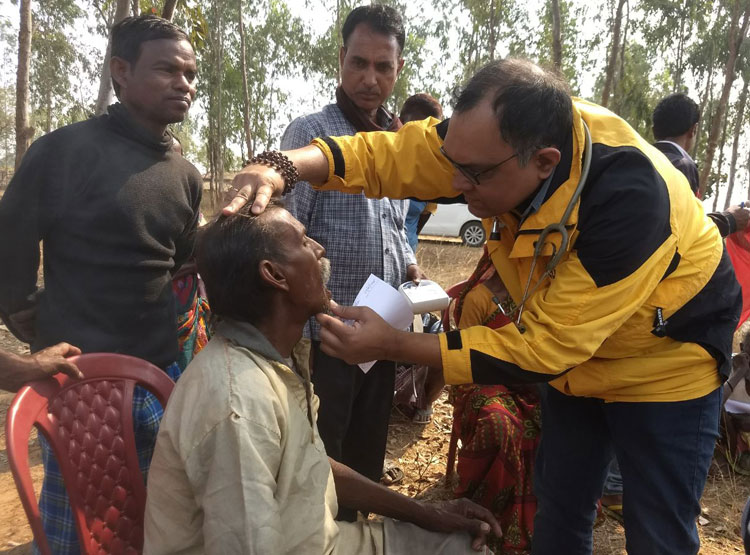
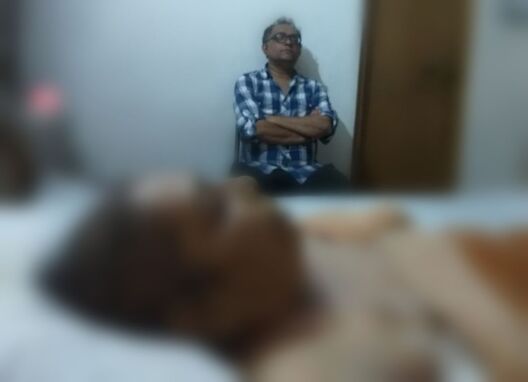
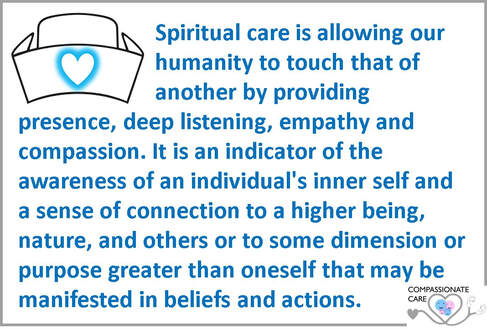



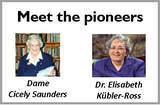
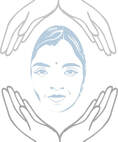
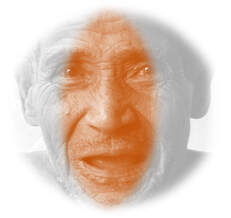

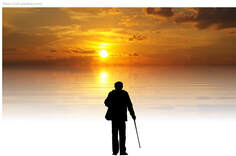
 RSS Feed
RSS Feed

